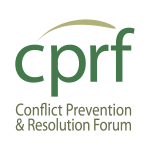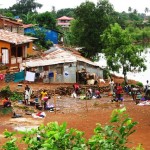How Projects can Change Lives
Today, Search for Common Ground hosted a discussion with the Washington Network on Children and Armed Conflict (WNCAC) on Participatory Approaches to Girls’ Reintegration – Lessons from Participatory Action Research in Sierra Leone, Liberia, and northern Uganda.
A recent research project with a highly participatory process was described by the two speakers, Susan McKay and Mike Wessels. Susan McKay is Professor of Gender and Women’s at the University of Wyoming Mike Wessels is Professor at Columbia University in the Program on Forced Migration and Health.
McKay and Wessels with their team have recently conducted a research project on community-based reintegration support for girl mothers and other vulnerable girls returning from armed forces or armed groups to their communities in Northern Uganda, Sierra Leone, and Liberia. The core principal in this project was to include the girls and listen to their ideas, visions and needs. Working with different donors and agencies from the West as well as in-country academics and NGOs the research team surveyed different projects in several communities and focused on how the lives of the girls changed once they were able to participate in a project.
Most of them had been stigmatized and marginalized by their communities and even in their families. One of the reason was that they were engaged in transsexual work and their children were born out of wedlock and sometimes even rape. Through the projects the girls were able to bond with each other and form a cohesive group. This group dynamic empowered them and they started to become active members of their communities. As Mike Wessells said: “The difference between how these women looked at the beginning of the project and how they looked at the end of it, was downright stunning.” They had changed their whole attitude and left their status as a victim regaining their strength and dignity by running their own little projects and being able to contribute to their families’ income.
If you would like to learn more about the project, find the final report here.
If you have missed the discussion, you can view the live stream. Check out WNCAC’s website to find the powerpoint presentation
More About Our Work:
The Washington Network on Children and Armed Conflict (WNCAC) is an informal network initiated in July 2004 by Search for Common Ground and the Displaced Children and Orphans Fund of USAID with the broad aim of improving the protection of children affected by armed conflict. Topics covered relate to such issues and areas of practice as child protection, education, and psychosocial interventions in emergencies; child soldiers; separated children, humanitarian relief, post-conflict development; conflict resolution; and peace building.
The Network for Youth in Transition is a free online evidence-based resource focused on youth and transition issues. It includes funding opportunities, evaluations, innovative youth programs, reports, videos, and members from over 1000 countries.









